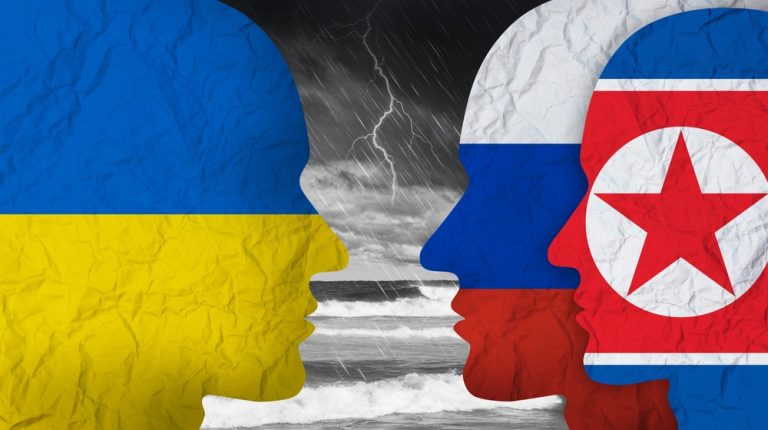In a move that signals a deepening alliance between Russia and North Korea, NATO confirmed on Monday that North Korean troops have been deployed to assist Russian forces in the Kursk region, an area where Ukraine has intensified its attacks. The revelation comes as geopolitical tensions rise, with NATO officials and world leaders expressing concerns about the global repercussions of Pyongyang’s involvement in Russia’s war efforts. As North Korea denies the allegations, the deployment raises questions about the extent of cooperation between Moscow and Pyongyang and its impact on both the European and Indo-Pacific regions.
NATO’s Stance on North Korean Troops in Russia
NATO Secretary General Mark Rutte labeled the deployment a “significant escalation,” marking North Korea’s active involvement in Russia’s ongoing conflict with Ukraine. “The deployment of North Korean troops represents: one, a significant escalation in the DPRK’s ongoing involvement in Russia’s illegal war,” Rutte stated, using North Korea’s official acronym, the Democratic People’s Republic of Korea. He emphasized that this cooperation breaches U.N. Security Council resolutions and constitutes a dangerous expansion of Russia’s war. Rutte also urged both Russia and North Korea to “cease these actions immediately.”
U.S. Defense Secretary Lloyd Austin supported Rutte’s concerns, adding that the alliance between Russia and North Korea “will impact things in the Indo-Pacific as well.” He highlighted that North Korean forces were likely receiving basic combat training in Russia, a move that he called “a very, very serious issue.”
North Korea and Russia: Strengthening Military Ties
Reports of North Korean troops assisting Russia had circulated earlier, with U.S. intelligence indicating that Pyongyang moved at least 3,000 soldiers into Russia’s eastern regions in October. According to White House national security spokesperson John Kirby, these soldiers were believed to be undergoing combat training in Russia, suggesting they could soon participate in active combat. The U.S. has previously reported that North Korea supplied arms and munitions to Russia, including artillery and ballistic missiles, marking what Austin described as a “strengthened relationship” between the two nations.
Kirby noted that Moscow might be compensating North Korea with technology, a concerning development given North Korea’s ongoing missile program. “We know Mr. Putin has been able to purchase North Korean artillery,” Kirby said, emphasizing the mutual benefit Russia and North Korea appear to be deriving from this alliance. Despite the North Korean denials, these developments suggest a significant escalation in military cooperation, further isolating both countries on the world stage.
Responses from Ukraine and South Korea
Ukrainian President Volodymyr Zelenskyy voiced his alarm at the North Korean involvement, stating that Kyiv has “clear data” indicating North Korean personnel are fighting alongside Russian troops. Zelenskyy described the alliance between Russia and North Korea as a “new threat” that could worsen the conflict. “If the world remains silent now, and if we face North Korean soldiers on the front lines as regularly as we are defending against drones, it will benefit no one in this world and will only prolong this war,” he warned.
South Korea, which has provided humanitarian aid to Ukraine but no military assistance, has also raised security concerns. Seoul denounced North Korea’s involvement as a “grave security threat” and pledged to work with the international community to counter the risks. Russian Foreign Ministry spokesperson Maria Zakharova, however, deflected blame to South Korea, suggesting that Seoul’s support for Kyiv contributed to the situation.
Implications for Global Security
The North Korean troop presence in Russia reflects a shifting global alliance that could reshape security strategies for NATO, the U.S., and their allies. Austin highlighted that Russia’s reliance on North Korean personnel points to the strain on Moscow’s forces after significant battlefield losses in Ukraine. “This is an indication that he [Putin] may be even in more trouble than most people realize,” Austin said, underscoring the toll that two and a half years of conflict have taken on Russian forces.
The potential for North Korean forces to actively engage on Ukrainian soil introduces a new level of complexity to the conflict. This partnership may prompt further international sanctions and greater military support for Ukraine, as well as increased vigilance in the Indo-Pacific region, where the U.S. and allies are wary of North Korea’s expanding military capabilities.
NATO’s confirmation of North Korean troops in Russia signals a troubling new phase in the Ukraine conflict, with the potential for lasting global repercussions. As Russia faces military strain and North Korea deepens its involvement, this unlikely alliance has introduced fresh instability, challenging NATO and allied forces to respond strategically. With the international community watching closely, the collaboration between Moscow and Pyongyang represents not only a geopolitical shift but also a reminder of the volatile alliances shaping today’s global landscape.


